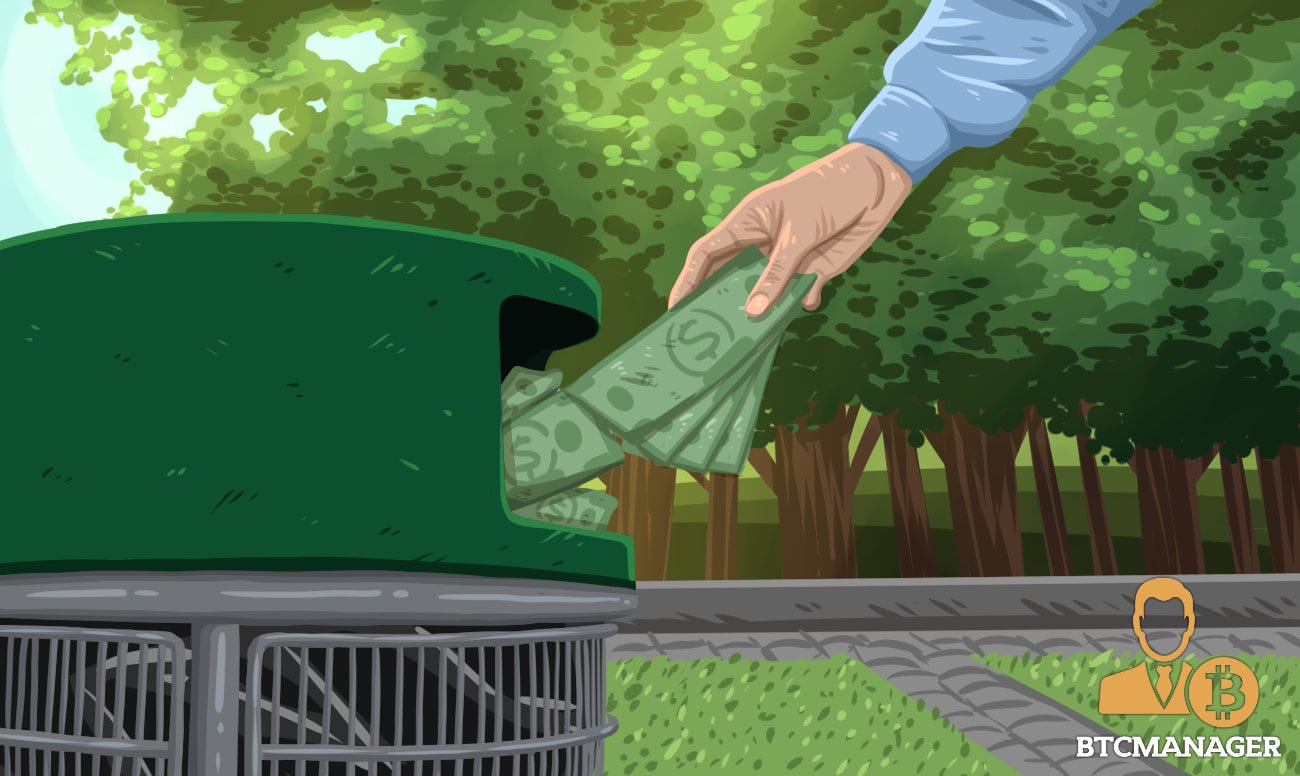Cashless Societies Sound Great in Theory, but Fail in Reality: A China Case Study

With the world’s most advanced and widespread digital payments infrastructure, cash is fast becoming a thing of the past in China. Internet payment giants like Alipay and TencentPay have cornered a vast domestic market and created what some see as a utopia of ubiquitous mobile payments. A Foreign Policy report, however, shows a very different side of the supposed success story and tells a story of deep inequality with potentially global implications.
Prevalence of Cashlessness
In China, cash is becoming an endangered resource. Whether by accident or by design, the sheer ubiquity of Tencent’s WeChat is so pronounced that practically everyone uses the app to make payment. Some vendors are so used to carrying out transactions via WeChat that they have trouble making a change when customers pay with cash, leading some to refuse cash transactions altogether.
The problem is so pronounced that the People’s Bank of China (PBoC) branch in the Anhui province is working to tackle the problem. According to a senior official quoted by Foreign Policy, cleanup is needed, because disposing of cash payments altogether will create serious social problems.
Behind the supremely tech-savvy, mobile payments-enthused face of urban China, there still lies a deep-seated contradiction that is a microcosm of the country as a whole. While it is one of the world’s largest and quickest growing economies, China still has serious issues regarding inequality and social mobility.
The death of cash may not be the gift it is often presented as for the simple reason that a large proportion of the country’s population still depends on cash for their survival.
As more and more Chinese businesses, municipal authorities and individuals join the cashless wave, what is not happening is everyone being carried along into a sci-fi future. What is happening is that it is outlining and carving out existing economic divisions in stark relief – young versus old; yuppie urban middle class versus relatively poor rural population; workers versus pensioners.
In some cases, botched migrations to cashless payments by local authorities have left society’s most vulnerable – the elderly and the poor – completely out of the consumption loop.
Increasingly, the question is being asked whether the mobile payments boon can stand in for cash. On the one hand, some question it on a moral and economic level, asking whether it can serve the needs of everyone adequately.
On the other hand, some question its legality under Chinese law, which states that the renminbi (RMB) is “the legal currency of the People’s Republic of China” and that “within China’s national borders, the usage of renminbi for transactions by work units or individuals cannot be revoked.”
Debate notwithstanding, figures from the Cyberspace Administration of China released in January 2017 show that 469 million Chinese users are registered on at least one mobile payment platform – a 31.2 percent increase over 2016 figures. According to the China Internet Network Administration Center, mobile payments as a proportion of total transactions rose to 67.5 percent from 47.7 percent between December 2016 and December 2017.
Indeed, Alipay and TencentPay are so commonplace across China’s cities that apart from high-end stores and street stalls, even street performers and beggars now use QR codes to ask for the 21st century equivalent of loose change. While this may seem nice and inclusive, however, data from the 2017 World Bank Global Findex shows that about 200 million people across the country do not have access to formal banking services.
As a result of this, it may very well be the case, with the rise of cashlessness that almost a fifth of China’s entire population is effectively being locked out of the country’s economy.
Assumptions of Equality
As is the well-publicized case with their colleagues in Silicon Valley, Chinese app developers do not necessarily set out to build platforms with a full picture of the sheer diversity of the audience it will interact with. Many apps are developed with plugins to WeChat and Alipay, based purely on the assumption that everyone uses Alipay or WeChat.
After all, to the developers, everyone they know, from their neighbors to their friends to their co-workers to the street guitar busker pays or accepts payments for anything using a QR code linked to one of these payment apps.
The problem then occurs when the platform comes into use by people who do not fit into the developers’ archetype. According to a 2017 report from the Consultative Group to Assist the Poor (CGAP), nearly 70 percent of rural Chinese people still live permanently offline, cash-based lives as they have done for much of the past century.
The report says that without a compelling reason to get a smartphone or open a bank account, these people will not do either of those things. What this means is that 70 percent of China’s population outside of its urban centers is facing an existential threat from the creeping ubiquity of mobile payments.
Soon, if the current momentum is not checked, they will be unable to access China’s economy on a fundamental level. In many cash-only communities, the death of cash will mean that residents will be unable to buy or rent agricultural equipment, seeds and other farming inputs, which will be disastrous for the food security of the world’s most populous county.
Like their Silicon Valley counterparts, Alibaba and Tencent stoically refuse to discuss their products regarding these potential problems, however. As far as they are concerned, their mission to grow their user base is not motivated primarily by profit, but by a higher purpose of making lives more accessible and more connected by making transactions more convenient and intuitive.
Their idea is to expand into rural areas and gain market share by convincing elderly and unbanked people to come into the traditional banking system and join half a billion Chinese citizens using a paid app.
WeChat is often used by China’s rural-urban immigrants to communicate with their families back home, and the company hopes to leverage this existing utility to push mobile payments on such people and thus grow its user base. Alibaba on its part is carrying out marketing campaigns to introduce older people to its platform.
In either case, the message is clear – China’s mobile payments giants are not going anywhere, and since older or rural unbanked Chinese are not going to beat them, they might as well join them.
For now, it seems to be a fight that the tech giants are winning. While the PBOC shifts uneasily, displeased by the worsened economic figures that come out when people spend less RMB, the Chinese government, authoritarian though it may be for the time being has declined to interfere. Whether China’s large population of unseen and unheard rural poor will do well out of the changing landscape remains to be seen.
The impasse seems to be the ultimate microcosm of the Chinese experience in the 21st century. An exciting, dynamic economy with an irrepressible entrepreneurial spirit, which is also at the same time elderly, conservative, rural and technology-averse. If China’s cashless experiment works out for everyone, the world will then have an example for reference before rollout elsewhere. If not, it will at least be a cautionary tale.













